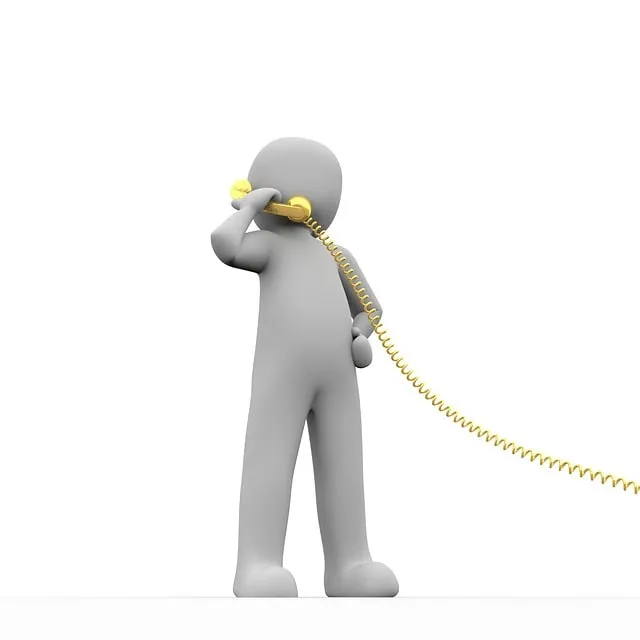Healthcare compliance call centers are critical for protecting sensitive patient information through robust HIPAA adherence. By employing advanced encryption, access controls, staff training, and multi-factor authentication, these centers ensure the confidentiality of Protected Health Information (PHI). They facilitate secure communication between healthcare providers while maintaining patient privacy, thus fostering trust in the digital age. Strict compliance with HIPAA standards enables efficient task management, such as appointment scheduling and record keeping, revolutionizing patient care and data security.
In the digital age, protecting sensitive healthcare data is paramount. HIPAA standards serve as a cornerstone for safeguarding patient information, mandating strict protocols for secure communication among healthcare providers. This article explores the critical role of call centers in upholding these standards, delving into security measures, best practices, and compliance strategies essential to navigate the intricate landscape of healthcare data protection. Discover how leading call centers are implementing robust systems to meet HIPAA requirements while fostering effective, secure communication within the healthcare sector.
- Understanding HIPAA Standards for Healthcare Data Protection
- The Role of Call Centers in Ensuring Patient Privacy
- Implementing Strict Security Measures in Call Center Operations
- Best Practices for Secure Communication in Healthcare
- Compliance Strategies to Meet HIPAA Requirements
- Case Studies: Successful HIPAA-Compliant Call Centers in Healthcare
Understanding HIPAA Standards for Healthcare Data Protection

In the realm of healthcare, protecting sensitive patient information is paramount. This is where HIPAA standards come into play as a robust framework designed to safeguard medical data privacy. Compliance with the Health Insurance Portability and Accountability Act (HIPAA) is mandatory for all healthcare providers, including call centers handling patient interactions. These regulations establish rules for securing protected health information (PHI), ensuring that it remains confidential and accessible only to authorized individuals.
A top-tier healthcare compliance call center must implement a comprehensive HIPAA support system to maintain secure clinic communication. This involves strict protocols for data encryption, access controls, and staff training on privacy practices. By adhering to these standards, call centers can offer medical data privacy protections, ensuring patient information remains secure and confidential during every interaction.
The Role of Call Centers in Ensuring Patient Privacy

Call centers play a pivotal role in safeguarding patient privacy and ensuring healthcare compliance. They act as a robust HIPAA support system, establishing secure communication channels that protect protected health information (PHI). Trained professionals handle sensitive data, adhering to stringent protocols designed to maintain medical data privacy.
These centers implement advanced security measures to safeguard PHI during transmission and storage. Encryption technologies, role-based access controls, and regular staff training on HIPAA regulations are common practices. By employing these strategies, healthcare compliance call centers foster trust between healthcare providers and patients, ensuring that sensitive information remains confidential and secure.
Implementing Strict Security Measures in Call Center Operations

In the realm of healthcare compliance, call centers play a pivotal role in maintaining the security and privacy of protected health information (PHI). To ensure medical data privacy, these centers must adhere to stringent regulations, particularly those set forth by HIPAA. Implementing robust security measures is paramount in their operations. This includes encrypting all data transmission, utilizing secure communication channels, and enforcing strict access controls to limit PHI exposure.
Advanced authentication protocols, regular staff training on cybersecurity best practices, and continuous monitoring for potential breaches are essential components of a comprehensive HIPAA support system. By integrating these measures, healthcare compliance call centers can safeguard medical data privacy while facilitating seamless communication between healthcare providers.
Best Practices for Secure Communication in Healthcare

In the healthcare industry, where trust and confidentiality are paramount, implementing robust best practices for secure communication is non-negotiable. A compliant healthcare call center plays a pivotal role in safeguarding protected health information (PHI) by adhering to stringent standards set forth by HIPAA (Health Insurance Portability and Accountability Act). This involves employing advanced encryption methods for all data transmission, ensuring that sensitive medical data privacy is maintained during every interaction.
Effective secure clinic communication strategies encompass training staff on ethical handling of PHI, implementing multi-factor authentication, and regularly auditing access logs to detect any unauthorized attempts. Additionally, utilizing secure voicemail systems, encrypted email platforms, and dedicated secure lines for remote access further fortifies the defense against data breaches. These measures not only protect patient information but also foster seamless collaboration among healthcare providers while ensuring compliance with evolving healthcare regulations.
Compliance Strategies to Meet HIPAA Requirements

To meet the stringent HIPAA standards, healthcare compliance call centers implement robust strategies to safeguard Protected Health Information (PHI). These include rigorous employee training on privacy and security protocols, encryption of all data transmitted and stored, and regular audits to ensure adherence to regulations. Call center agents are educated about the importance of secure clinic communication, handling PHI with utmost care, and adhering to strict data protection guidelines.
A reliable HIPAA support system is integral to managing healthcare compliance. This involves setting up robust security measures like access controls, audit trails, and secure backup procedures. By integrating these strategies, call centers ensure that patient information remains confidential, accurate, and secure throughout every interaction, fostering trust in their services among healthcare providers.
Case Studies: Successful HIPAA-Compliant Call Centers in Healthcare

In today’s digital era, healthcare organizations are increasingly relying on call centers for patient support and communication. However, navigating the complex landscape of healthcare compliance is a critical challenge. Successful case studies demonstrate that dedicated HIPAA-compliant call centers can be game-changers in ensuring medical data privacy and patient confidentiality services. These centers employ sophisticated technologies and strict protocols to safeguard protected health information (PHI), transforming the way healthcare providers connect with their patients.
For instance, some leading healthcare institutions have partnered with specialized call centers that meet stringent HIPAA standards. Through these partnerships, they’ve achieved seamless secure communication while maintaining compliance. These call center services not only handle patient inquiries but also facilitate complex tasks like scheduling appointments, managing medical records, and providing post-discharge care instructions, all while upholding the highest levels of patient confidentiality.
